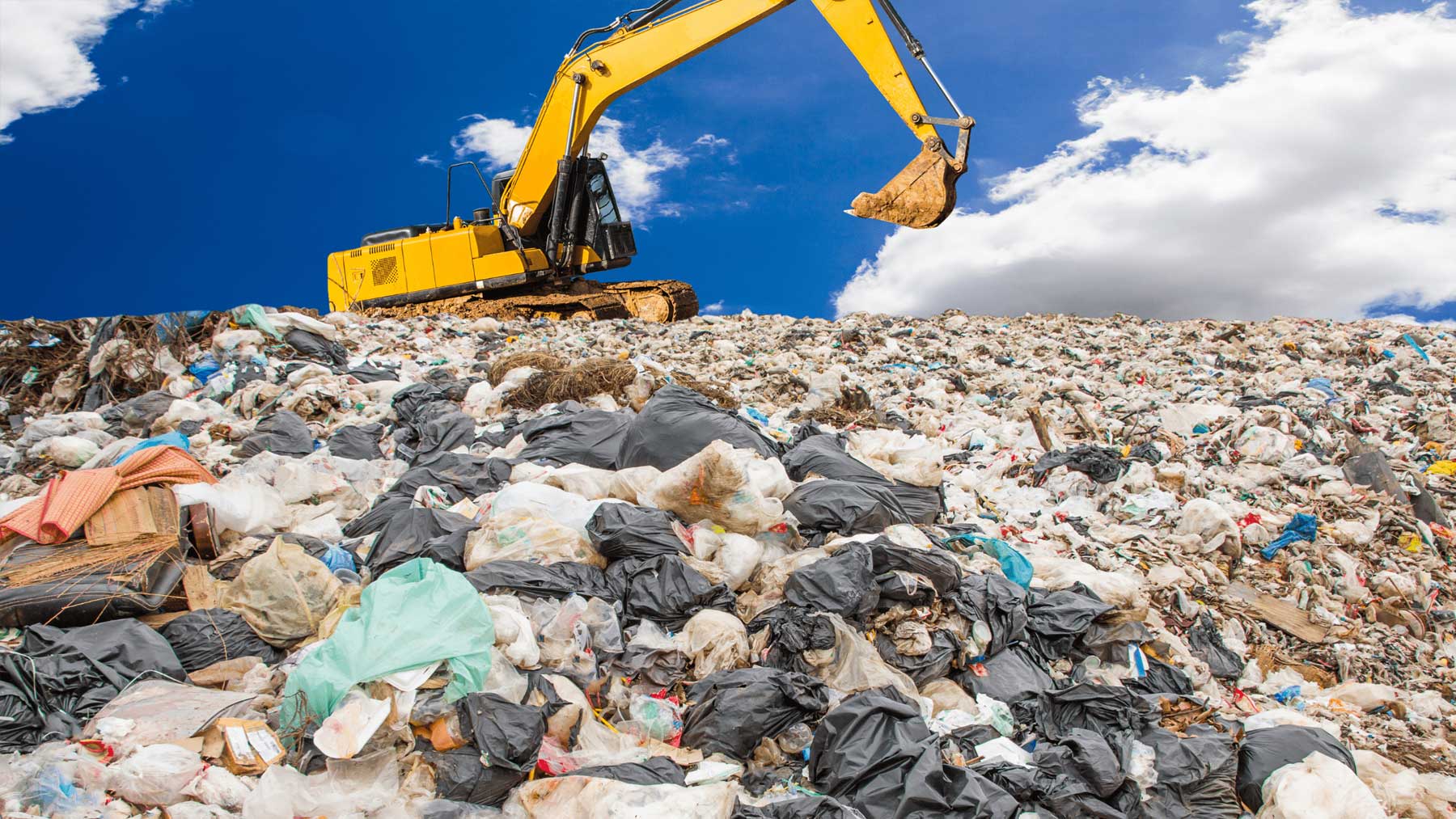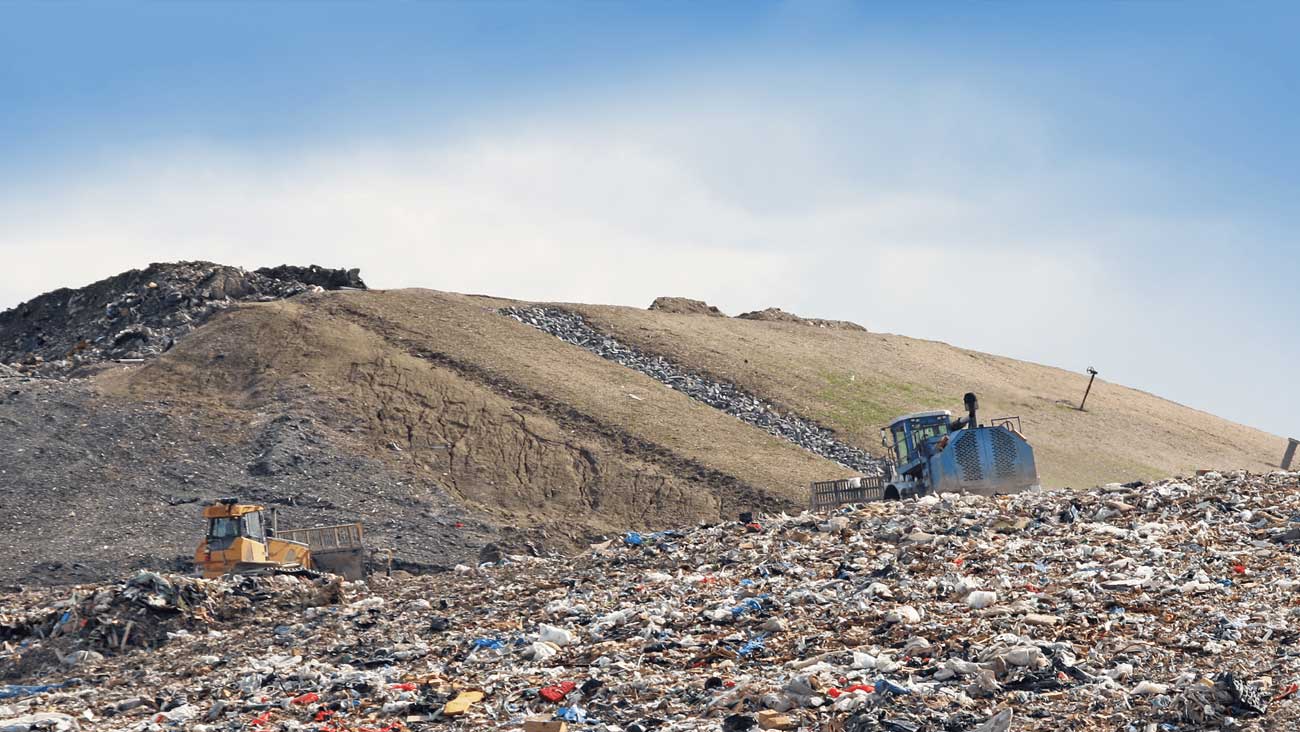
Seem simple enough – bury rubbish and move on – right?
But did you know, landfills not only take up valuable land space but also have huge lasting environmental impacts, making them far more problematic than you maybe first thought? While they do play a role in waste management, it’s becoming increasingly clear that they should be used only as a last resort.
Let’s explore why, and look at what alternatives can be used instead.
The environmental costs of landfills
The main issue with landfills is the damaging effect they have on our environment. The waste produces methane, a potent greenhouse gas made when organic waste decomposes in oxygen-free conditions. Because methane is effective at trapping heat in the atmosphere – 28 times more effective than other greenhouse gases such as carbon dioxide – it contributes heavily to climate change. While some modern landfills are equipped to capture and convert methane into energy, this process is far from perfect, and a large amount still escapes into the atmosphere.
In addition to this, landfills can also lead to soil and water contamination from leachate – a toxic liquid that forms as waste breaks down. Leachate can seep into the ground and potentially pollute local water sources. Although landfills are lined to prevent this, the barriers can fail over time, creating long-term risks for communities and ecosystems.

Social and economic drawbacks
As well as harming the environment, landfills also pose challenges to nearby communities. They often produce unpleasant odours, attract pests, and decrease property values in surrounding areas. It’s also possible for those people living near to landfills to develop health problems.
From an economic standpoint, landfills are not as cheap as they might appear. As suitable sites become scarcer, transporting waste to remote locations becomes increasingly expensive. In addition, the long-term costs of managing closed landfills – such as monitoring for gas emissions and leachate – can be significant.
A missed opportunity for resource recovery
When waste ends up in a landfill, it’s obviously no longer able to be reused. Missed opportunities like this means that materials like metals, glass, and plastics have gone to waste instead of being recycled and used again. The same applies to organic waste, which could have been composted or converted into energy.
This point is particularly important for businesses who could have missed opportunities to reduce costs and enhance sustainability by recycling their waste instead of sending it to landfill. By prioritising recycling, composting, and waste reduction, companies can cut expenses, improve their environmental footprint, and even generate revenue from recycled materials.
The alternatives to landfills
So, what can we do if landfills pose so many problems to our environment? Fortunately, there are other methods and technologies that can be used as alternatives:
- Recycling and composting: Recycling materials like paper, metal, and plastic not only reduces waste but also saves energy and resources. Composting organic waste can produce nutrient-rich soil and reduce methane emissions.
- Waste-to-energy (WTE): Technologies that convert waste into energy offer a way to manage rubbish while generating electricity or heat. Although WTE isn’t perfect, as it still produces emissions, it’s far cleaner than landfills and offers a productive use for non-recyclable waste.
- Circular economy practices: A circular economy focuses on designing products and systems that minimise waste. This includes using materials that can be easily recycled, repairing rather than discarding products, and creating take-back schemes for end-of-life items.
- Waste reduction at the source: Reducing how much waste you have is the simplest way to avoid the need to use landfills. For example, reducing packaging, or changing production processes could reduce the amount of waste you generate.
Why the “last resort” approach matters
By treating landfills as a last resort, we can all play a part in preserving the environment by reducing greenhouse gas emissions and conserving natural resources. Businesses can also benefit by adopting more sustainable waste management practices to enhance their reputation, and even reduce costs.
Landfills will always have a place in waste management, but that place should be at the very bottom of the hierarchy. By focusing on waste prevention, recycling, and innovative solutions like waste-to-energy, we can reduce our reliance on landfills and move toward a more sustainable future. For businesses, the shift isn’t just about doing the right thing – it’s about staying competitive in a world that values sustainability.

Contact Everflow today!
At Everflow, our goal is to make your utilities simpler. We ensure you get great-value contracts that are tailored to your needs and easy to manage.


